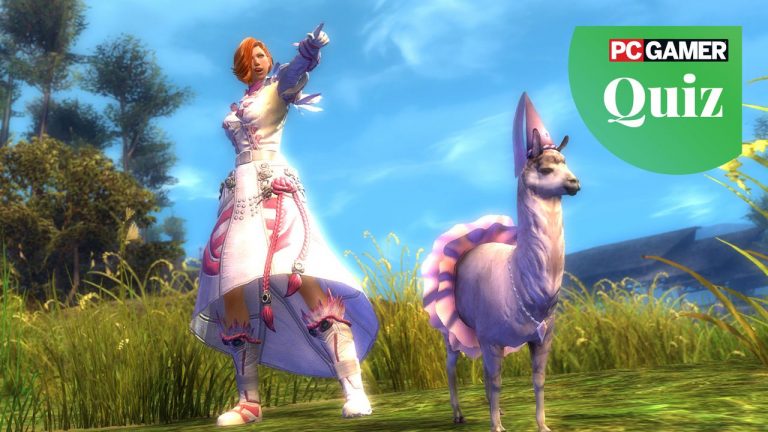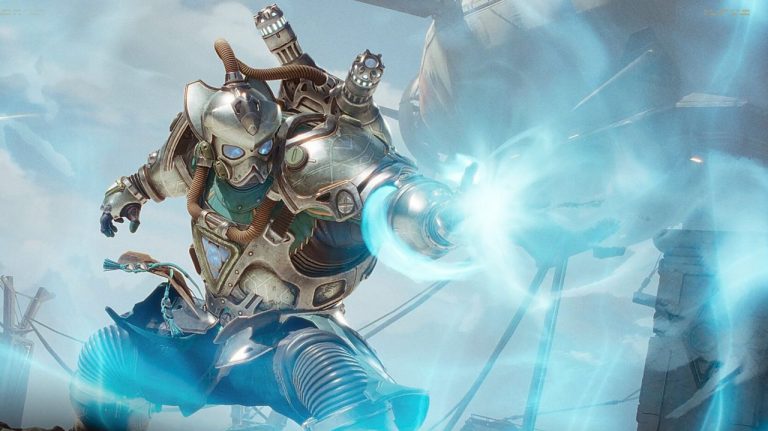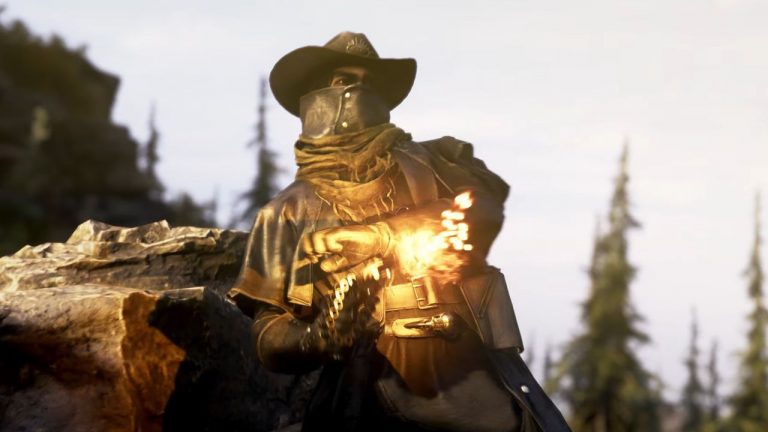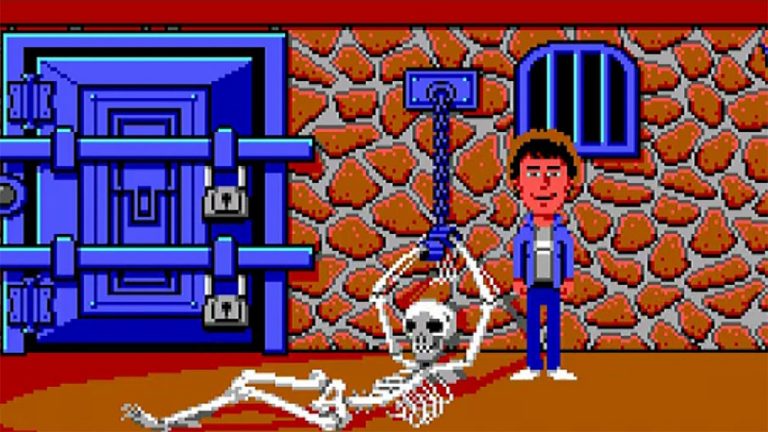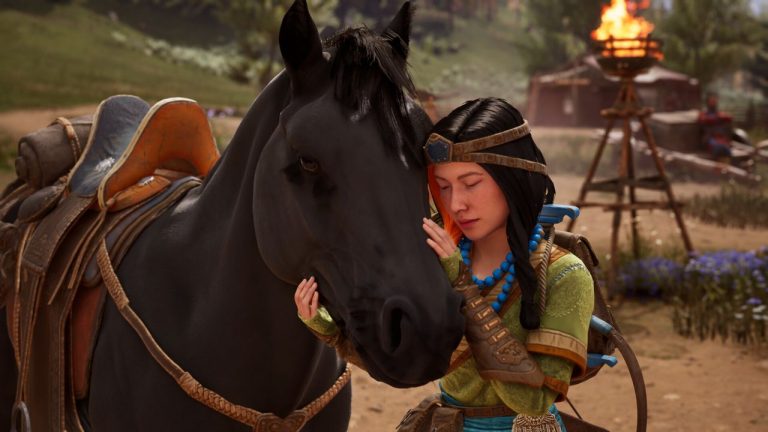Welcome, fellow adventurers and storytellers! For over two decades, I’ve had the pleasure of weaving tales filled with daring heroes, fearsome monsters, and, of course, the indomitable dwarves. One of the most rewarding aspects of creating a campaign is crafting dwarf names that bring characters and cultures to life, and dwarven names hold a special place in my heart.
Dwarves, with their rich lore and distinctive culture, offer a treasure trove of inspiration for any D&D campaign. Their names are not just labels; they are imbued with history, honor, and the echoes of ancient battles fought deep within the mountains. A well-chosen name can convey a dwarf’s lineage, their clan’s reputation, and even their personal traits and accomplishments. Understanding the significance of these names can add layers of depth to your characters and enrich your storytelling.
In this guide, we’ll delve into the art of crafting authentic and memorable dwarven names. We’ll explore the historical and mythological roots that have shaped our modern conception of dwarves, drawing inspiration from sources like Norse mythology and the timeless works of J.R.R. Tolkien. We’ll break down the components of dwarven names, from their robust first names to the storied clan names that anchor their identities.
Whether you’re a seasoned Dungeon Master looking to enhance your campaign or a new player eager to create a compelling character, this guide is for you. We’ll provide practical tips and examples to help you create names that resonate with the depth and resilience characteristic of dwarven culture. So grab your axe, don your mithril armor, and join me on this journey into the heart of dwarven naming traditions. The adventure awaits!
The Importance of Names in Dwarven Culture
First, let’s take a look at why dwarf names are so important in fantasy culture.
Significance: How Names Reflect Dwarven Heritage and Personality
In the world of dwarves, a name is far more than just a means of identification. It is a badge of honor, a symbol of one’s lineage, and a testament to personal and familial achievements. Dwarven names carry the weight of history and the pride of ancestors who have carved their tales into the very stone of their homes. Each name tells a story, reflecting the values, traits, and heritage that are held dear by the dwarven people.
A dwarf’s first name often encapsulates their parents’ hopes and dreams, as well as the personality traits they believe their child will embody. Strong, enduring, and resolute are common themes in these names, mirroring the stoic and steadfast nature of dwarven society. Names like “Thrain” (meaning “stubborn”) or “Durin” (meaning “enduring one”) are not uncommon, providing a glimpse into the individual’s character even before they have had a chance to prove themselves.
Clan names, on the other hand, are a direct link to the collective achievements and reputation of a dwarf’s extended family. These names are earned through generations of hard work, bravery, and sometimes, infamous deeds. Bearing a clan name like “Ironfist” or “Stonebreaker” immediately sets expectations about a dwarf’s skills and the legacy they are expected to uphold. This dual-naming convention ensures that every dwarf carries with them a sense of personal identity intertwined with a profound respect for their heritage.
Structure: Typical Structure of Dwarf Names
Dwarven names typically follow a straightforward yet meaningful structure: a given name followed by a clan name. This two-part format serves not only to identify the individual but also to place them within the context of their familial and societal role.
Given Name: The first name is chosen based on the parents’ aspirations, reflecting qualities they admire or wish to see in their child. These names often derive from the dwarven language, rich with guttural sounds and robust syllables that evoke strength and resilience.
Clan Name: Following the given name, the clan name is a marker of the individual’s lineage. It encapsulates the history and collective reputation of the family, often hinting at the clan’s traditional professions, heroic deeds, or ancestral traits. Clan names are usually descriptive and honorific, emphasizing qualities like fortitude, craftsmanship, or martial prowess.
For example, a dwarf named “Thrain Ironfist” immediately conjures an image of a stubborn, resilient individual hailing from a clan renowned for their formidable strength and combat skills. This structure helps to reinforce the cultural importance of both personal identity and collective heritage, ensuring that every name carries a deep significance.
Historical and Mythological Inspirations
The rich tapestry of dwarven names in fantasy draws heavily from historical and mythological sources, particularly those of Norse origin. The ancient sagas and epic tales of the Norsemen have left an indelible mark on how we perceive dwarves and their culture.
Norse Influence: In Norse mythology, dwarves are master craftsmen and skilled miners, often depicted as small, stout beings with unparalleled abilities in forging magical weapons and artifacts. Names like “Eitri” and “Brokk” from these myths have influenced the naming conventions for dwarves in modern fantasy. These names often convey strength, craftsmanship, and a deep connection to the earth and stone.
Tolkien’s Legacy: J.R.R. Tolkien’s works, particularly “The Hobbit” and “The Lord of the Rings,” have significantly shaped contemporary perceptions of dwarves. Tolkien’s dwarves, with names like “Thorin Oakenshield” and “Gimli son of Glóin,” embody the traits of honor, bravery, and loyalty. Tolkien’s use of Old Norse language and his creation of detailed genealogies for his dwarven characters have set a standard for the depth and richness expected in fantasy dwarf names.
Other Sources: Beyond Norse mythology and Tolkien, other historical and cultural sources contribute to the pool of inspiration for dwarven names. Germanic folklore, Celtic traditions, and even historical accounts of ancient mining communities offer a wealth of material. These sources provide additional layers of meaning and context, enriching the names and making them feel grounded and authentic.
By drawing from these varied inspirations, you can craft dwarven names that not only sound authentic but also resonate with the depth and complexity of the cultures they represent. Whether you are a Dungeon Master seeking to populate your world with memorable characters or a player looking to give your dwarf a name worthy of legends, understanding these influences can help you create names that are as enduring and impactful as the dwarves themselves.
Components of Dwarven Names
Next, let’s look at the basic components of good dwarven names.
First Names: Common Prefixes and Suffixes
Dwarven first names are often constructed with strong, guttural sounds that convey robustness and durability. These names frequently employ specific prefixes and suffixes that add to their distinctiveness and cultural flavor. Here are some common elements:
Prefixes:
“Bal-“: Signifying power or might, as in Balin.
“Dur-“: Connoting endurance or steadfastness, as in Durin.
“Thra-“: Suggesting stubbornness or resilience, as in Thrain.
“Gor-“: Indicating strength or ferocity, as in Gorin.
“Brog-“: Denoting craftsmanship or skill, as in Brogar.
Suffixes:
“-in”: A common ending, often signifying a sense of belonging or identity, as in Thorin.
“-ar”: Suggesting leadership or prominence, as in Dain.
“-orn”: Evoking tradition or heritage, as in Orn.
“-ek”: Indicating a sharp mind or keen senses, as in Lodek.
“-grim”: Connoting a formidable or stern nature, as in Balgrim.
By combining these prefixes and suffixes, you can create a wide array of robust and meaningful dwarven names that reflect the character traits you wish to emphasize.
Clan Names: The Role of Clan Names and How They Are Formed
Clan names hold immense significance in dwarven society, representing the collective legacy and achievements of a family. They often highlight the clan’s traditional occupations, notable deeds, or ancestral traits. The formation of clan names typically involves descriptive elements that immediately convey a sense of identity and purpose.
Common Elements in Clan Names:
Occupational References: Many clan names reflect the traditional crafts and professions of the dwarves, such as “Stonebreaker” or “Ironforge.”
Heroic Deeds: Names like “Dragonslayer” or “Giantbane” commemorate legendary acts of bravery and skill.
Natural Elements: References to natural features or materials, like “Stonehelm” or “Goldvein,” denote a deep connection to the earth and its treasures.
Adjectival Descriptors: Adjectives such as “Strong” or “Grim” often precede other elements to emphasize certain qualities, as in “Stronghammer” or “Grimbeard.”
Examples of Clan Names:
Ironfist: Denoting a clan known for their formidable strength and martial prowess.
Stonefoot: Reflecting a lineage of miners and builders with deep ties to the earth.
Goldhammer: Highlighting a heritage of skilled smiths and artisans known for working with precious metals.
Boulderbeard: Evoking the rugged and enduring nature of the clan members.
Thunderaxe: Suggesting a history of fierce warriors renowned for their powerful strikes.
By carefully selecting elements that reflect the desired characteristics and history of a clan, you can create names that add depth and authenticity to your dwarven characters.
Nicknames: The Use of Nicknames and Their Meanings
Nicknames are an integral part of dwarven culture, often earned through notable deeds, physical traits, or personality quirks. These monikers add another layer of identity, providing insight into a dwarf’s reputation and character within their community.
Types of Nicknames:
Descriptive: Based on physical attributes or notable characteristics, such as “Redbeard” for a dwarf with a striking red beard or “Broadshoulder” for one with a particularly sturdy build.
Occupational: Reflecting a dwarf’s role or skills, like “Smith” for a renowned blacksmith or “Brewmaster” for an expert brewer.
Heroic: Earned through acts of bravery or significant achievements, such as “Dragonsbane” for a dragon slayer or “Shieldbreaker” for a warrior known for breaking enemy defenses.
Personality: Highlighting personality traits, like “Grim” for a particularly stern and serious dwarf or “Jolly” for one known for their cheerful disposition.
Examples of Nicknames:
Ragnar the Bold: A dwarf known for his fearless nature.
Thrain Stonehand: Recognized for his exceptional skill in stone carving.
Gimli Ironfoot: Noted for his steadfastness and unyielding stance in battle.
Balin the Wise: Respected for his wisdom and counsel.
Durin the Silent: Known for his quiet demeanor and thoughtful presence.
Nicknames are often used affectionately within the community, reinforcing bonds and acknowledging individual contributions. They provide a personal touch that further enriches the cultural tapestry of the dwarven people, making each character feel more vivid and relatable.
Creating Authentic Dwarf Names
Now we get into the nitty-gritty!
Language and Sound: How to Capture the Sound and Feel of Dwarven Names
To capture the authentic sound and feel of dwarven names, it’s important to consider the linguistic roots and phonetic qualities that make these names distinctive. Dwarven names often have a strong, guttural quality, with hard consonants and robust syllables that evoke a sense of strength and durability.
Phonetic Elements:
Hard Consonants: Dwarven names frequently use hard consonants like “b,” “d,” “g,” “k,” “r,” and “t.” These sounds convey a sense of toughness and solidity.
Vowel Combinations: Common vowel combinations in dwarven names include “ai,” “au,” “oi,” and “ou,” which add a rich, deep resonance to the names.
Guttural Sounds: Incorporating guttural sounds, such as those found in Germanic or Norse languages, can enhance the authenticity of the names. Examples include “gh,” “ch,” and “gr.”
Syllable Structure: Dwarven names typically have one or two syllables, making them concise and impactful. Compound names are common, combining two meaningful words or elements.
Examples of Phonetic Construction:
“Brokkr” (pronounced BROH-ker): A name with hard consonants and a guttural sound.
“Thrain” (pronounced THRAYN): Combining the hard “th” sound with a strong vowel combination.
“Gorak” (pronounced GOH-rak): Featuring hard consonants and a simple, robust syllable structure.
By focusing on these phonetic elements, you can create names that not only sound dwarven but also carry the weight and presence that befits these stout and enduring characters.
Meaning and Symbolism: Incorporating Meaningful Elements into Names
Dwarven names are rich with meaning and symbolism, often reflecting personal traits, ancestral heritage, or notable deeds. Incorporating these elements into your names can add depth and resonance, making them more memorable and significant.
Personal Traits: Names can reflect individual characteristics or qualities admired within dwarven culture.
Examples: “Thorin” (meaning “brave”), “Durin” (meaning “enduring”), “Balgrim” (meaning “strong-willed”).
Ancestral Heritage: Many dwarven names honor the legacy of ancestors or the clan’s history.
Examples: “Balin” (named after a legendary ancestor), “Gimli” (meaning “one of the clan of Glóin”).
Notable Deeds: Names that commemorate heroic acts or significant accomplishments.
Examples: “Dragonsbane” (a dwarf who has slain a dragon), “Goldhammer” (a master smith renowned for working with gold).
Symbolic Elements: Incorporating symbols from dwarven mythology or culture can enrich the name.
Examples: “Stonefoot” (symbolizing steadfastness), “Ironfist” (denoting strength and combat prowess).
By weaving these meaningful elements into the names, you ensure that each name carries a story and significance, adding to the cultural richness of your dwarven characters.
Consistency: Ensuring Names Fit Within Your World’s Lore
Maintaining consistency in naming conventions is crucial for creating a cohesive and believable fantasy world. Here are some tips to ensure your dwarf names fit seamlessly within your world’s lore:
Establish Naming Rules: Define the rules and patterns for dwarf names in your world, including common prefixes, suffixes, and phonetic structures.
Example: In your world, all clan names might end with “helm” (e.g., Stonehelm, Ironhelm), indicating a common cultural trait.
Cultural Context: Ensure that the names reflect the cultural and societal norms of your dwarven society.
Example: If your dwarven culture values craftsmanship above all, names like “Stonecarver” or “Goldsmith” should be prevalent.
Consistency with Language: Keep the linguistic roots consistent across all dwarf names to maintain a sense of unity.
Example: If your dwarf names are inspired by Norse mythology, ensure that the phonetic elements align with Norse linguistic patterns.
Historical and Mythological Alignment: Align names with the historical and mythological background you’ve established for your world.
Example: If your dwarves have a rich history of battling giants, names like “Giantbane” would be fitting and consistent with their lore.
By adhering to these guidelines, you can create a cohesive and immersive world where every dwarf name feels like a natural and integral part of the larger narrative. This attention to detail helps to reinforce the authenticity and depth of your fantasy setting, making it more engaging for players and readers alike.
Dwarf Names: Examples and Inspiration
Classic Examples: Notable Dwarf Names from Literature and Games
Dwarven names have been immortalized in various works of literature and games, providing a rich source of inspiration for your own creations. Here are some classic examples that showcase the diversity and depth of dwarven names:
Literature:
Thorin Oakenshield: From J.R.R. Tolkien’s “The Hobbit,” Thorin is a noble and determined leader, with “Oakenshield” symbolizing his protective nature and resourcefulness.
Gimli son of Glóin: Another of Tolkien’s creations from “The Lord of the Rings,” Gimli is brave and loyal, and his name reflects his lineage and heritage.
Durin: A legendary dwarf from Tolkien’s mythology, Durin the Deathless is the progenitor of the Longbeards, a clan renowned for their resilience and longevity.
Games:
Muradin Bronzebeard: From the “Warcraft” series, Muradin is a stout and valiant warrior, with “Bronzebeard” reflecting his clan’s legacy of strength and honor.
Bruenor Battlehammer: From R.A. Salvatore’s “Forgotten Realms” series, Bruenor is a king and fierce fighter, with “Battlehammer” signifying his martial prowess and leadership.
Beldin: From David Eddings’ “The Belgariad,” Beldin is a gruff but wise dwarf, with a name that conveys a sense of ancient wisdom and experience.
These examples illustrate the importance of meaningful names that reflect the character’s personality, role, and heritage, enriching the narrative and adding depth to their identity.
Generated Names: Tools and Techniques for Generating Names
Creating authentic and unique dwarf names can be a challenging yet rewarding task. Here are some tools and techniques to help generate names that fit seamlessly into your fantasy world:
Name Generators:
Fantasy Name Generators: Websites like FantasyNameGenerators.com offer a variety of options for generating dwarf names, providing instant inspiration with just a click.
Donjon Name Generator: Donjon’s tool allows you to customize settings to generate names that match your world’s linguistic and cultural norms.
Techniques:
Combining Elements: Mix and match common prefixes and suffixes to create unique names. For example, combining “Thra-” with “-in” to form “Thrain.”
Cultural Inspiration: Draw from real-world cultures and languages that have a similar phonetic feel to your dwarven society, such as Norse or Old Germanic languages.
Random Selection: Create lists of prefixes, suffixes, and meaningful words related to your dwarven culture, and randomly combine them to generate names.
By using these tools and techniques, you can quickly create a diverse array of dwarf names that maintain the authenticity and depth of your world.
Custom Names: Creating Names Tailored to Your Character’s Background and Role
Creating custom names that are specifically tailored to your character’s background and role adds a personal touch and enhances the storytelling. Here’s how you can craft names that are perfectly suited to your characters:
Character Background: Consider your character’s history, profession, and traits when creating their name.
Example: A dwarf blacksmith known for forging legendary weapons might be named “Thrain Ironforge,” reflecting both his personal skills and his clan’s legacy.
Role in the Story: Think about the character’s role in your campaign or narrative and choose a name that fits their importance and actions.
Example: A wise and ancient dwarf sage could be named “Balin Runeweaver,” emphasizing his knowledge of ancient runes and magical lore.
Meaning and Symbolism: Incorporate elements that hold symbolic meaning within your world.
Example: If bravery is highly valued in your dwarven culture, a warrior might be named “Gorak Strongheart,” symbolizing his courage and determination.
Clan and Heritage: Ensure the name reflects the character’s clan and heritage, adding depth to their identity.
Example: A dwarf from a clan known for their mining expertise might be named “Durin Goldvein,” highlighting their connection to the wealth and resources of the earth.
By carefully considering these factors, you can create names that are not only unique but also deeply rooted in your character’s identity and the world they inhabit. This attention to detail enriches the narrative and makes your characters more memorable and engaging.
Common Pitfalls and How to Avoid Them
Overcomplication: Keeping Names Pronounceable and Memorable
One common pitfall in creating dwarf names is overcomplicating them with excessive syllables, complex phonetics, or unusual spellings. While it’s important for names to be unique and meaningful, they should also be easy to pronounce and remember.
Tips to Avoid Overcomplication:
Simplify: Aim for one or two syllables in first names and two to three in clan names. Names like “Thrain” or “Gimli” are simple yet effective.
Phonetic Clarity: Ensure the names have a clear and straightforward phonetic structure. Avoid combining too many consonants or using rare letter combinations.
Repetition Check: Say the name out loud a few times. If it’s difficult to pronounce or remember, consider simplifying it.
Consistency: Use a consistent naming pattern that players or readers can easily follow and recognize.
Example: Instead of “Zygrhorthil,” which is complex and hard to pronounce, opt for something like “Zorin” or “Thorkel,” which maintains a dwarven feel while being more accessible.
Cultural Inconsistencies: Ensuring Names Fit Within the Established Culture
Dwarf names should fit seamlessly within the established cultural and linguistic norms of your fantasy world. Inconsistent naming conventions can break immersion and make the world feel disjointed.
Tips to Ensure Cultural Consistency:
Linguistic Roots: Base your names on a consistent linguistic or cultural source, such as Norse or Old Germanic languages.
Naming Rules: Establish clear rules for how names are constructed, including common prefixes, suffixes, and phonetic patterns.
Cultural Elements: Incorporate elements that reflect the culture’s values, history, and mythology.
Internal Consistency: Ensure all names within a given culture or clan follow the same naming conventions.
Example: If your dwarven culture is inspired by Norse mythology, names like “Thorin,” “Durin,” and “Balder” fit well together, whereas a name like “Kael’thas” (more Elvish) would feel out of place.
Stereotypes: Avoiding Clichéd and Overused Names
While certain names and characteristics are iconic to dwarven culture, relying too heavily on stereotypes can make your characters feel unoriginal and uninteresting. Avoiding clichéd names helps create more dynamic and engaging characters.
Tips to Avoid Stereotypes:
Unique Twist: Give traditional names a unique twist or combine them with lesser-known elements to make them stand out.
Avoid Overuse: Steer clear of overly common names like “Thorin” or “Gimli” unless they serve a specific purpose or homage in your story.
Character Depth: Develop the character’s background and traits first, then choose a name that reflects their unique story and personality.
Cultural Depth: Deepen the cultural context to provide fresh and interesting naming conventions that go beyond typical stereotypes.
Example: Instead of naming a dwarf warrior “Stonefist,” which is very common, try something like “Brogon Stoutaxe,” which maintains the dwarven feel while offering something new.
By paying attention to these common pitfalls and applying these strategies, you can create dwarf names that are unique, memorable, and deeply integrated into your fantasy world. This enhances the overall narrative and provides a richer experience for players and readers alike.
Resources and Tools
When it comes to creating authentic and unique dwarf names, online name generators can be invaluable. Here are some top recommendations:
Fantasy Name Generators: This website offers a dedicated dwarf name generator that provides a variety of options, from classic to creative, ensuring you find the perfect fit for your character.
Fantasy Name Generators – Dwarf Names
Donjon Name Generator: Known for its customization options, Donjon allows you to generate names that align with specific linguistic and cultural patterns, enhancing the authenticity of your names.
Donjon – Fantasy Name Generator
RinkWorks Fantasy Name Generator: This tool offers a user-friendly interface and generates names based on traditional fantasy naming conventions, making it easy to find the right name quickly.
RinkWorks Fantasy Name Generator
Books and Websites: Further Reading and Resources for Deepening Your Understanding
To deepen your understanding of dwarven culture and naming conventions, consider exploring these books and websites:
Books:
“The Silmarillion” by J.R.R. Tolkien: Delve into the mythology and history created by Tolkien, which has heavily influenced modern fantasy dwarves.
“Norse Mythology” by Neil Gaiman: This book provides an engaging retelling of Norse myths, offering insight into the cultural and linguistic roots of many dwarf names.
Websites:
LitRPG Adventures: This site not only offers name generators but also a plethora of resources for creating detailed and immersive RPG characters and worlds.
Dwarves in Myth and Media: An online resource exploring the depiction of dwarves in various mythologies and media, providing historical context and inspiration.
Recap: Summarizing Key Points
In this guide, we’ve explored the art of creating authentic and memorable dwarf names. We began by understanding the importance of names in dwarven culture, reflecting heritage, personality, and achievements. We delved into the structure of dwarf names, examining the significance of first names, clan names, and nicknames. Historical and mythological inspirations, particularly from Norse mythology and Tolkien’s works, provide a rich foundation for naming conventions. We discussed the components of dwarf names, including phonetic elements, meaningful symbolism, and cultural consistency. Finally, we highlighted common pitfalls to avoid, ensuring your names are pronounceable, culturally consistent, and free from clichés.
Encouragement: Encouraging Readers to Craft Their Unique Dwarven Names and Share Them
Creating dwarf names is a journey into the heart of your fantasy world, adding depth and authenticity to your characters. I encourage you to use the tools and techniques discussed in this guide to craft names that resonate with your world’s lore and your character’s identity. Share your creations with fellow adventurers and storytellers, and let the legacy of your dwarves live on in your epic tales.
Bonus: Dwarf Name List and Generator
Sample Name List: A List of Pre-Generated Dwarf Names for Quick Reference
Thrain Ironfist
Durin Stonehelm
Balin Goldvein
Gorak Thunderaxe
Brogon Stoutaxe
Thrain Stonefoot
Gimli Ironforge
Muradin Bronzebeard
Thorkel Boulderbeard
Balin Runeweaver
DIY Name Generator: Simple Steps to Create a Name Generator Using Common Prefixes and Suffixes
Creating your own dwarf name generator can be a fun and rewarding process. Here are some simple steps:
List of Prefixes: Write down common prefixes like “Thra-“, “Dur-“, “Brok-“, “Gor-“, and “Balin-“.
List of Suffixes: Write down suffixes like “-in”, “-ar”, “-orn”, “-ek”, and “-grim”.
Combine Elements: Randomly combine prefixes and suffixes to generate a variety of names. For example:
“Thra-” + “-in” = Thrain
“Brok-” + “-grim” = Brokgrim
“Gor-” + “-ar” = Gorar
Add Clan Names: Create a list of clan names based on occupations, traits, or notable deeds, such as “Ironfist,” “Stonehelm,” or “Goldvein.”
Finalize Names: Combine the generated first names with clan names to create full names, ensuring they fit within your world’s lore and cultural context.
By following these steps, you can generate a wide array of unique and meaningful dwarf names that enrich your characters and bring your fantasy world to life.
The post Dwarf Names: Ultimate Guide to Dwarven Names in Fantasy appeared first on LitRPG Reads.




